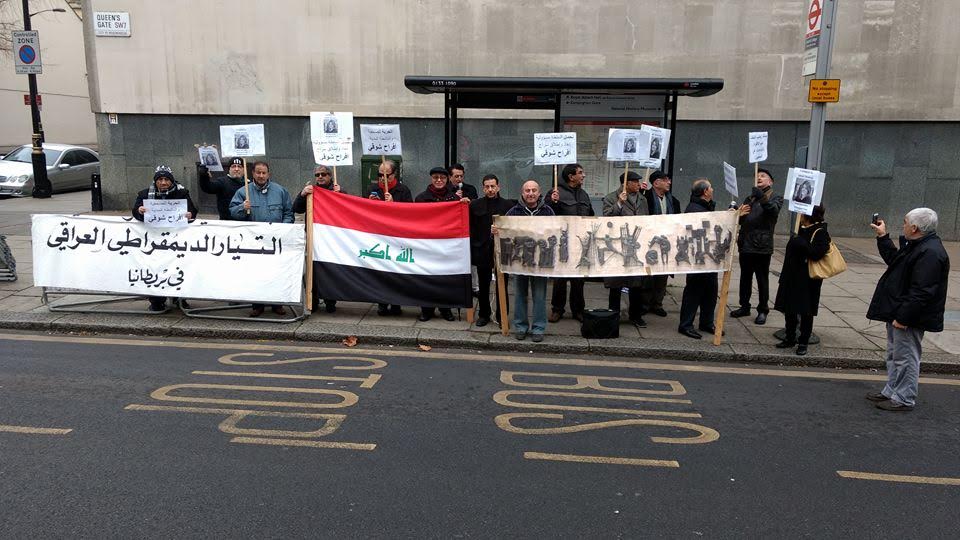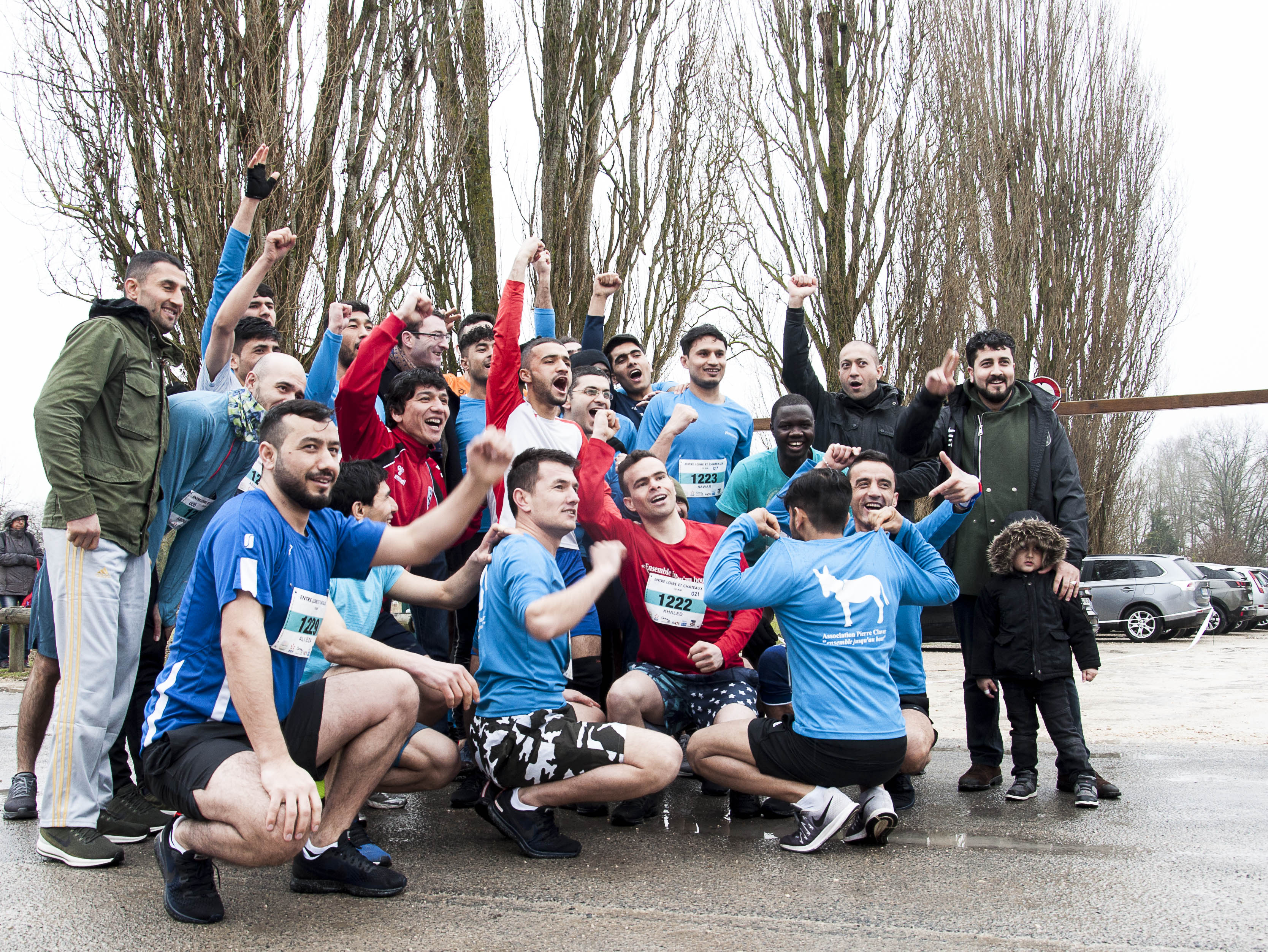
Hashim Alhashimi realized help wasn't coming, even after he had reached out over and over again.
In January of 2017, Alhashimi had contacted international human rights giants such as Amnesty International and Human Rights Watch for assistance in returning the kidnapped Iraqi journalist Afrah Shawqi al-Qaisi. After releasing satirical articles critiquing the Iraqi government, Shawqi was taken from her home in the middle of the night by a group of unidentified gunmen. Alhashimi and his colleagues heard of her disappearance and decided to mobilize.
Alhashimi is a retired senior project manager in the United Kingdom, and is currently an acting coordinator of the small human rights group, Iraqi Democratic Movement - UK branch. Since 2011, Alhashimi has been working with the group to bolster the democratic movement in Iraq in any way they can. So, when news broke of al-Qaisi's armed kidnapping, the Iraqi Democratic Movement UK started an intensive campaign to return her to safety.
Since 1992, 112 journalists have been murdered for their work in Iraq. Of those 112, 34 journalists were taken captive, and nine were tortured. Alhashimi and his colleagues were concerned for al-Qaisi's life following her abduction.
Alhashimi reached out to to both Amnesty International and Human Rights Watch, among other smaller human rights organizations. The response from these groups, he says, was less than he sought.
Alhashimi says he appealed in particular to a Human Rights Watch researcher from Baghdad he met briefly during a panel at the London House of Commons in late 2016. When they had met, the researcher, who Alhashimi did not name, gave Alhashimi her contact information and encouraged him to reach out to her when needed.
After al-Qaisi's kidnapping, Alhashimi says he called the researcher and told her of the campaign to return the journalist to safety. "I called her, I spoke to her, and she said, 'Send me the details, and I'll follow it up,' and nothing happened," says Alhashimi. "I tried to call her again… After two attempts of email and calls, there was no response on her end."
Ultimately, al-Qaisi's captors released her after more than a week. But the incident he described left him more disenchanted with the international human rights movement.
This wasn't the first time Alhashimi had been disenchanted.
From the early 90s when he was a student and activist fighting the Hussein regime, to today, when he continually reaches out to human rights organizations, Alhashimi has become increasingly disappointed with the direction in which the international human rights movement has developed. In this, he is part of a growing group of non-Western voices criticizing the movement.
Each of Alhashimi's experiences with international human rights organizations shaped his skepticism of their purposes. So much so that, recently, Alhashimi found himself at a lecture focused on analyzing the international human rights movement in its global entirety.
In January of 2018, a panel discussion was held at the University of London SOAS. It hosted five human rights advocates and academics, and was centered around the release of the book "Human Rights Futures," which focuses on possible future directions of the international human rights movement. The panel members spoke about their praises and critiques of the movement, and how they think the movement should continue with theories that are presented in the book.
Alhashimi is no stranger to lectures and speeches such as these, and he says he finds that there seems to be a lot of talk within the walls of the space, but no action being taken out in conflict areas. "I have to be honest - I thought they were just staff, employees," he says two months after the panel. "I didn't feel that they are activists. That is the problem I have with these people."
The first time Alhashimi remembers having issues with these organizations was in the early 90s, when he and a few other activists were campaigning against Hussein's regime and its human rights atrocities. Four days after Iraq's invasion of Kuwait in 1990, the United Nations Security Council imposed strict economic sanctions on Iraq, which he says created many difficulties for Iraqis caught in the war-torn country.
"We found that human rights organizations were more prepared to campaign on [the issue of the sanctions] more than the issue of the abuses and atrocities committed by the regime," Alhashimi says. "They felt if they go against and highlight and campaign hard against Saddam Hussein's atrocities, they are going to detract from the efforts to highlight the impact of the sanctions on the population in Iraq," he says.
Joanne Mariner, a panelist at the SOAS lecture, and the current interim director of Law and Policy at Amnesty International explains a widespread phenomenon of the international movement, "In the past, what you would see is international human rights groups based in Western capitals, namely London and New York City, staffed by white Ivy League graduates, often not fluent in the languages of the countries they were visiting, going on what were referred to as missions... then you would return to your Western capital, write a report, and launch it hopefully with a lot of publicity, and gaining the attention of the... Western media...
"This model veered sometimes dangerously close to the Western white savior complex, sort of exoticizing of what were seen as brutal places abroad, and not looking critically at your own abuses," she says.
Alhashimi says that during the earlier part of Hussein's regime, the Democratic Movement was entirely clandestine, with individuals risking their lives while fighting the government. Alhashimi speculates that it is because of this secrecy and immense danger that many human rights organizations were hesitant to put forth their own activists. He insists that this was a weakness of the international human rights movement.
During his academic time at university, Alhashimi worked with fellow students and activists to highlight many of the human rights violations that the Hussein regime was committing. Alhashimi's work was so controversial that he felt he had to leave Iraq for the UK, or risk the possibility of being captured by Hussein's forces.
"In those days, they're not going to argue with you or try to convince you and change your mind," he says. "You simply disappear."
Alhashimi also recalls finding out that many human rights organizations actually had connections with government officials of the Hussein regime. He remembers the discrepancies between the organizations' links with local activists and government officials. "So, they get a part of the picture from [government officials], from that tract, and they see that source as more important, because it is their channel for influencing as well," he says.
"I have to say," Alhashimi says, "we are more successful in talking to parliamentarians from all parties and talking to trade unionists... and talking to the Foreign Office, civil servants - we are more successful talking these people than talking to Amnesty International or Human Rights Watch."
While Alhashimi is aware of the flaws human rights organizations hold, he also recognizes that they have more resources and manpower to get things done. For him, it's rather whether they are getting the right things done. With this in mind, in the mid to late 90s, Alhashimi actually entertained close relationships with a particular London-based human rights organization that he requested to keep anonymous.
For years, he recalls having open and trusting relationships with executives of this organization, and being able to influence some of their work in Iraq. "They were very active in supporting our campaigning against [human rights] atrocities, Saddam [Hussein's] atrocities, in Iraq," he says.
Alhashimi says that in the mid-90s, there were changes in who was in charge of the organization's international affairs. After working so intimately with the previous leadership, Alhashimi says that he recognized a very sudden shift in the direction of the organization. He says that the new executives were more sympathetic to Hussein's pan-Arab, ultra-nationalist ideologies, which was against what Alhashimi and his colleagues were fighting for. He says that after the change in leadership, communication from the organization stopped completely.
"Can you imagine," Alhashimi asks angrily. "This is a huge organization, an organization that exists in every corner of the world, but their activities were curtailed and shaped by three people in an office in London who are paid workers, because of their political allegiance."
At the end of the hour-long panel discussion at SOAS, there was time for questions from the audience, during which Alhashimi purposefully stood up and addressed the panel. "My question is," he starts, "wouldn't it be much better, and more effective, if you focused on and facilitated the work of those human rights activists in their countries, because they are the front line."
Alhashimi continues, "With all due respect, you are not. You are big brawn, you can be seen in all the big meetings, you have access to decision makers, you can use that to help and support … the local human rights activists. There is no question... that would give you more credibility," he finishes to excited applause from the crowd.
Mariner was first to respond to Alhashimi, saying, "First, your point is well taken, but I want to assure you that is the way we operate. We work extremely closely with local groups, always when we visit a country." Three men in the front row bow their heads together and start to murmur.
Mariner then continues on to address a different question on non-state actors and suggests that the audience visit the sites for both Amnesty International and Human Rights Watch to verify their growing bodies of work in reference to corporate abuses and complicity.
Immediately after the lecture, Alhashimi says, "I think the one thing that the human rights movement, in its formal existence, as an industry in the Western world, the best thing that they can do is to link up with these people through organizations that actually live, breathe, and act on the ground in the hotspots."
Al-Qaisi, the kidnapped freelance journalist in Baghdad, was released safely from her captors in the middle of the night. Initially, she insisted that her captors were harmless. "I just want to say that I'm fine and I was well treated," she said immediately after her release.
In June of 2017, al-Qaisi, safely in Holland with her family, finally spoke candidly about her nine days in captivity. "For five days they would tighten my hands with a robe, blindfold me and hang me from the ceiling for hours while telling me to confess to writing the piece," she says. "At one point I thought I will die. I wasn't courageous enough."
Al-Qaisi was released without intervention from international human rights organizations, Alhashimi says, but the uproar caused by many smaller, local activist groups affected her timely release. After her liberation, there wasn't much support available to the journalist and her family.
Eventually, a small U.K. charity, the Rory Peck Trust, which works with freelance journalists, helped provide physiological and financial support for the al-Qaisi family in the move from Iraq.
At the panel, Alhashimi describes feeling like human rights giants aren't doing as much as they can with their resources and manpower. He says, "It's anger and frustration when you feel that there is a possibility for doing more, but people are choosing to do less."
"I'm a bit frustrated," says Alhashimi. "I'm frustrated. That's probably the best description."





